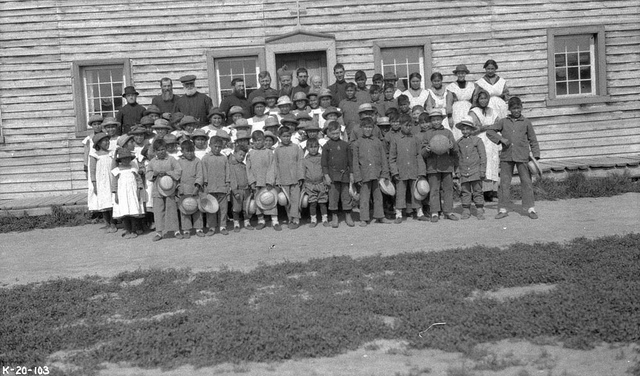Canada’s 150th anniversary was celebrated on July 1st.
Well…sort of.
It depends on how you define “Canada.”
Canada was initially declared a country of its own 150 years ago, but before that, it was a settlement for European people, and even further back, it was the native land of many indigenous tribes. Canada, as a recognized country, is only 150 years old, and already it has a long and bloody history of colonialism, cultural genocide, and systemic racism.
And that’s not to say that I’m not proud to be a Canadian. I am—especially lately. In a world where Donald Trump can be president of the United States and people continue to lose basic human rights every day, I’m so relieved to be living in a country that actually seems to be taking steps in the right direction.
Our current prime minister has the most diverse cabinet that I have ever seen, including disabled people, native people, the first ever Muslim minister in Canadian history, and 15 women, women who represent exactly half of the cabinet. That’s something that shouldn’t be a big deal, but it is, considering the United States government is comprised of a group of majority white men who are signing away women’s rights to reproductive health.
In Canada, our prime minister has marched in the Toronto pride parade, and he has opened our doors to refugees in need of our country’s help. I’m proud to live in a country where all of this is true, but at the same time, I am not going to deny that my country has its faults.
In Canada, 49 percent of aboriginal people live on remote reservations, leaving them out of sight and out of mind for many Canadians. And on these reservations, many natives experience a quality of living comparable to third world countries, with limited access to health care and education—even though Canada is not a third world country. That is completely unacceptable.
Issues such as alcoholism and violence are also common among natives in Canada, and not because it is inherent amongst native people, but because between the years of 1876 and 1996 (within that period of 150 years that we celebrated this year), native children were taken away from their families and forced to attend residential schools in an attempt to teach them to forget the language and culture of their ancestors and to assimilate them into “Canadian society.” While they were there, they faced mental, physical, and sexual abuse so severe that many of the survivors and their children are still dealing with the effects.
Not to mention, as reported by Terry Glavin in 2014, native Canadians are incarcerated 10 times more often than the national rate despite making up 4.3 percent of Canada’s population, they face an unemployment rate of 14 percent, and if they go missing or are murdered, there is a chance that the police will not even bother to investigate. And what I have listed here is only the tip of the iceberg when it comes to Canada’s race problem.
So why am I saying all of this while simultaneously talking about Canada’s 150th anniversary?
Well, this year, Canada Day was intended to be a celebration of Canada’s history, but all of this is an important part of Canada’s history, and it needs to be remembered just as much as our strengths need to be celebrated. This is a part of Canada’s history that is frequently ignored.
And while explorer Christopher Columbus falls more under American history than Canadian, I think it is important to state that I had only ever heard him hailed as a hero until I was in my second year of university, when I discovered that he was actually guilty of enslaving natives—which involved torturing, raping, beating, and kidnapping men, women, and children. And it wasn’t until then that my teachers assigned reading from the perspective of native authors.
Just as most native reservations are out of sight and out of mind, it is too easy for the majority of Canadians to just ignore what is actually going on in our country.
And we can’t.
If our country is going to have a stronger future than what has happened in our past, we need to fix it.
Maybe I’m not the best person to say how exactly we fix this, because I lack the lived experience of being a native person in Canada. But I do know that one of the first big steps in moving forward is spreading awareness. It’s taking a moment to remember every aspect of Canada, the good and the bad.
~
Author: Ciara Hall
Image: Pixabay; Biblioarchives/Flickr
Editor: Catherine Monkman
Copy Editor: Danielle Beutell
Social Editor: Yoli Ramazzina











Read 1 comment and reply